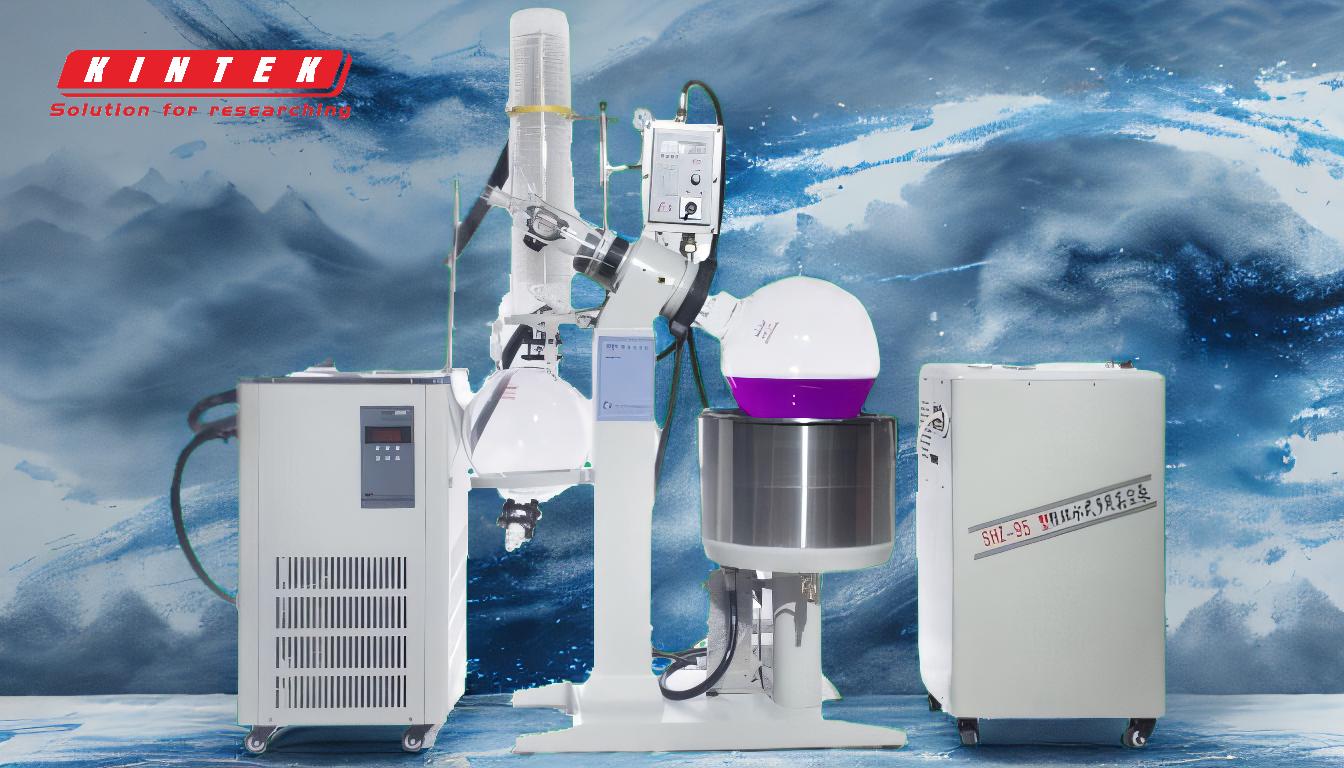Molecular distillation is a specialized technique widely used in the pharmaceutical industry due to its ability to handle heat-sensitive and high-boiling-point materials without degradation. It is particularly valuable for purifying and concentrating active pharmaceutical ingredients (APIs), removing impurities, and isolating thermally sensitive compounds. Applications include the purification of vitamins, polyunsaturated fatty acids, and natural health products, as well as the production of high-purity drugs like antibiotics, steroids, and topical ointments. This method ensures the preservation of the natural properties of materials, eliminates the need for chemical treatments, and enhances the quality and efficacy of pharmaceutical products.
Key Points Explained:

-
Purification of Active Pharmaceutical Ingredients (APIs):
- Molecular distillation is used to purify APIs, ensuring high purity and efficacy. For example, it is employed in the purification of antibiotics like penicillin and steroids, which are sensitive to heat and require careful handling to avoid degradation.
- The process removes volatile impurities, solvents, and other contaminants, resulting in a cleaner and more stable product.
-
Concentration of Vitamins and Polyunsaturated Fatty Acids:
- This technique is ideal for concentrating vitamins (e.g., vitamin E) and polyunsaturated fatty acids (e.g., omega-3 fatty acids), which are essential for pharmaceutical formulations.
- It allows for the separation of these compounds from complex mixtures without damaging their molecular structure, ensuring their bioactivity is preserved.
-
Isolation of Thermally Sensitive Compounds:
- Molecular distillation is particularly effective for isolating thermally sensitive compounds, such as carotenoids and tocopherols, from natural sources like palm oil and soybean oil.
- These compounds are often used in pharmaceuticals for their antioxidant and health-promoting properties.
-
Removal of Impurities and Solvent Residues:
- The process is used to remove impurities, including organic pollutants, residual solvents, and heavy substances, from pharmaceutical formulations.
- For example, it is applied in the purification of fish oils to remove contaminants and in the deodorization of vegetable oils to eliminate unwanted odors.
-
Production of High-Purity Natural Health Products:
- Molecular distillation is widely used in the production of natural health products, such as functional oils and herbal extracts, without the need for chemical treatments.
- This ensures the preservation of the natural properties and bioactivity of the materials, making them suitable for pharmaceutical applications.
-
Solvent Swapping and Drying:
- In pharmaceutical manufacturing, molecular distillation is used for solvent swapping, where one solvent is replaced with another to improve product stability or solubility.
- It is also used for drying water-sensitive materials, ensuring the final product is free from moisture and stable for long-term storage.
-
Separation of High Boiling Point Compounds:
- The technique is effective for separating high boiling point compounds, such as glycols and polyols, which are used as solvents or excipients in pharmaceutical formulations.
- It ensures the removal of impurities and the production of high-purity solvents required for drug synthesis.
-
Enhancement of Traditional Pharmaceutical Processes:
- Molecular distillation improves traditional pharmaceutical processes by reducing thermal damage, optimizing synthesis, and enhancing product quality.
- For example, it is used in the crystallization of drugs and the purification of topical ointments and cough syrups, ensuring consistent and high-quality formulations.
-
Applications in Drug Formulation:
- The technique is used in the formulation of various pharmaceutical products, including topical ointments, cough syrups, and aspirin.
- It ensures the removal of impurities and the concentration of active ingredients, resulting in safer and more effective medicines.
-
Preservation of Natural Properties:
- By eliminating the need for chemical treatments, molecular distillation preserves the natural properties of pharmaceutical ingredients, making it an environmentally friendly and sustainable option.
- This is particularly important for natural health products and functional oils, where maintaining bioactivity and purity is critical.
In summary, molecular distillation plays a crucial role in the pharmaceutical industry by enabling the purification, concentration, and isolation of heat-sensitive and high-boiling-point compounds. Its applications range from the production of high-purity APIs and natural health products to the enhancement of traditional pharmaceutical processes, ensuring the quality, efficacy, and safety of pharmaceutical formulations.
Summary Table:
| Key Applications | Benefits |
|---|---|
| Purification of APIs (e.g., antibiotics, steroids) | Ensures high purity and efficacy, removes volatile impurities and solvents |
| Concentration of vitamins and fatty acids | Preserves bioactivity, ideal for vitamins (e.g., vitamin E) and omega-3s |
| Isolation of thermally sensitive compounds | Effective for carotenoids, tocopherols, and other natural antioxidants |
| Removal of impurities and solvent residues | Cleanses organic pollutants, residual solvents, and heavy substances |
| Production of natural health products | Maintains natural properties without chemical treatments |
| Solvent swapping and drying | Improves product stability and ensures moisture-free products |
| Separation of high boiling point compounds | Produces high-purity solvents for drug synthesis |
| Enhancement of traditional processes | Reduces thermal damage, optimizes synthesis, and improves product quality |
| Applications in drug formulation | Ensures safer and more effective medicines (e.g., ointments, cough syrups) |
| Preservation of natural properties | Environmentally friendly, maintains bioactivity and purity of ingredients |
Discover how molecular distillation can optimize your pharmaceutical processes—contact us today for expert insights!










